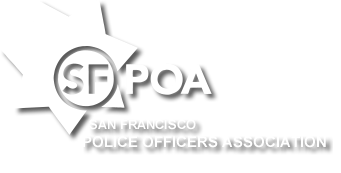Where should one really begin with a conversation about police suicide? How does one approach a subject that for far too long has been regarded as “taboo” within the police community? How does one cope with the reality that within the past year our department has suffered the loss of three members (2 active and one recently retired) due to suicide and the attempted suicide by another two members? It should be noted that all incidents referred to above included the use of a handgun during the acts or attempted acts.
For far too long, any talk of police suicides were whispered in hushed tones. Too many police administrations avoided the subject of “police suicides” as it reflected an unspoken “weakness” among their ranks that was a direct reflection upon the leadership of the organization. This can and should no longer be the case. This is a subject that can no longer be avoided, but must be dealt with in a very respectful and responsible manner. This department owes it to its members to get out in front of this crisis and meet it head on. Am I being overly dramatic using the term crisis? No, I’m not.
The department and association have been rocked with the suicide of one member last December, another this past August, and most recently a third member just last month. The loss of each – all popular and well respected -- has been hard on our membership. So many questions go unanswered as each death creates a sense of loss and pain. I cannot even begin to imagine the devastation and grief engulfing their immediate families and friends of these three members.
There are so many questions surrounding suicide in general and police suicides in particular. After all we have learned about suicide in the past several years, it is still a subject that lends itself to more questions than tangible answers. Despite the stigma associated with suicide, it’s evident that we need to address the issue now, with straight talk and objective and effective training.
There are so many emotions surrounding the suicide of an individual that are evoked from within. The deep sense of sadness and loss are often coupled with feelings of anger, anguish, fear, doubt and concern among others.
From my training and experience, I absolutely believe that suicide is but a very short-term solution for one that leads to lifetime of grief and sadness for those left behind. Mothers, fathers, sisters, brothers, wives, children, family members and friends are unfairly burdened with a daily reminder of the loss and the tragic circumstances surrounding the loss. Many of those closest to the suicide victim will forever be questioning himself or herself, wondering if they had done enough to prevent such a loss. Of course, the ONLY person able to answer any of their agonizing questions is no longer around to ease the pain of the living.
Concerns are growing concerns among our members about the general mental and emotional health of our officers. The national average of police suicides number approximately 300 in a year. All too often while we are busy taking care of so many other people, we lose sight and forget to take care of each other and ourselves. How ironic to think that we could be more dangerous to ourselves than are the bad guy’s!
There are many barriers that discourage troubled cops from seeking help for themselves. The Blue sub-culture is perhaps the most difficult to overcome. There is a definite cultural stigma associated with a cop seeking emotional help.
First of all, we consider ourselves to be the caretakers…people come to us for help, not the other way around. People don’t go out of their way to call the cops when life is good. They call us when things are bad and they want us to take care of their problems and make them go away. We are trained to be strong, resourceful, and resilient. We are trained to “man up” and deal with chaos. We are trained to discipline ourselves not to show weakness or emotions out on the street when things are going to hell. We are taught and cautioned to “keep it together” and “move on.” We can sometimes lose our own sense of humanity after witnessing man’s inhumanity to man day after day and year after year. It is absolutely amazing the amount of sadness, anger, fear and despair we encounter over the years of our careers and even more amazing how we keep all that crap inside of us. We have not been very good at being able to confront these feelings and often turn to unhealthy substances to get us through the pain or the daily rigors of surviving the trails and tribulations of this job. We don’t want to be seen as “nosey” or intrusive into fellow officers’ personal lives.
There is also the fear among cops that if they seek help for a rather sensitive issue that the police administration will learn about it and they will now have a “jacket” as being a “nut” or “unstable,” or a person that “needs to be watched” or, even worse, they will have their star and gun taken away and sent away to “Siberia” or to the “rubber gun squad” never to be heard from again. Cops fear they may lose their jobs if their bosses or the police administration learn about their situation.
We often hear that our jobs and the madness related to it, coupled with substance abuse, stress, poor health, and all the other negative features in our lives, is a recipe for disaster, especially when you consider the access we have to guns and the opportunity to use them at a point of utter despair. And all of that is true.
It deeply saddens me to think that three of our members were at such a low point of despair that they could not see any other viable option other than to take their life to ease their pain. They were in such a state of pain that they could no longer think or act rationally, that each closed their mind to hope.
Like so many others in this department, I knew all three. I did not know two as well as I knew the third, but I grieve their losses all the same. I spoke to one a week before he took his life and he assured me that everything was cool. He told me that he was working out and taking care of himself. He told me he was grateful that the members of this department still watched out for each other and thanked the members of his unit in particular for looking in on his well being.
The one I knew the best I first met when he entered the department. He was a decorated police officer with a tough exterior, but also with a heart of gold. He always displayed a good sense of humor and always seemed to be comfortable with himself and his surroundings. He was going through some tough personal issues and over a period of time a noticeable change overtook him. Though many people interceded or attempted to intercede on his behalf, he succumbed to his overwhelming despair. It broke my heart to hear that he had left us. Many were shocked by the circumstances of his sudden death and the improbability. It was painful to comprehend and digest.
Many of us are looking for answers. We are wondering aloud and silently from within for reasons that will bring us a sense of understanding. We are asking why and how this could happen. Was this job related? What were the circumstances; what were the causes? Was anything being done to address this? We ask ourselves, “Is there anything I could have done to prevent this? Could I have done more? We are angry and sad. We ask, what is the department is going to do about this problem? People are asking why certain units in this department designed to investigate cops are growing in numbers while there are only three members assigned to the Behavioral Science Unit to address the concerns of and take care of over two thousand officers and their families.
I know the Behavioral Science Unit is doing it’s very best to address the private and sensitive concerns of our members in a professional, responsible, and respectful manner. The Behavioral Science Unit staff routinely addresses the Advanced Officer or CPT classes at the Academy. The topic is in a training block designed to explain the nature of our work and the professional resources available to our members and their families. We have an outstanding PEER Support program within the department comprised of almost 300 members who are specially trained by professionals to listen and to communicate with our members and offer resources of help and hope. We also have a top notch Critical Incident Response Team (CIRT) that responds care and assist members who themselves have been involved in a critical incident such as an officer involved shooting, an officer injured, etc. We respond to such scenes to offer support and encouragement to those members and attend to their needs. We see them through the incident and do post incident follow-ups to check on their well-being.
At a recent meeting at the Behavioral Science Unit between BSU staff members, twenty Psychological Professional Staff Members and Assistant Chief Denise Schmitt, discussions were held and ideas exchanged as how to expand the involvement of the Psych Pros and the members of our department. I am very hopeful the department’s administration will seize this opportunity based on recent events to recognize that in fact we do have a serious problem on our hands and that necessary measures must be taken to address this issue.
From our very early stages of training at the academy we are taught how to back each other up on runs, how to do a “roll-by” when a unit is doing a traffic stop or taking on some suspicious characters. We now have to train ourselves to take care of each other when one or some of us are going through a rough patch. We need to be able to step in and ask those we care about “Are you OK? You seem down?” If you find it difficult to approach someone you are concerned about, please don’t hesitate to contact someone over at Behavioral Science and we will take care of your concerns. We will make the confidential contact and do a well being check. Our phone number is 415-837-0875. We are located at Treasure Island.
Please remember that help and hope are just a telephone call away. If working together we can save the life of even one of our fellow officers, then all of efforts will be incredibly worthwhile. Please take care of yourselves; please take care of each other. Our lives depend on it.
I leave you with one of poet John Donne’s greatest meditations. It is absolutely an appropriate passage with which to close this discussion. God Bless and Be Safe!
“No man is an island, entire of itself...any man's death diminishes me, because I am involved in mankind; and therefore never send to know for whom the bell tolls; it tolls for thee." – John Donne

